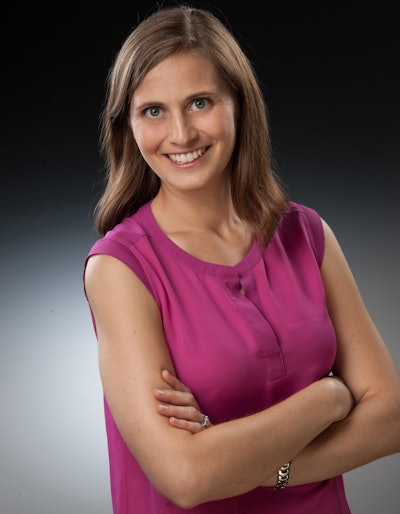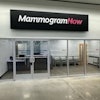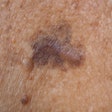
I am a lawyer by trade and training. That means that the words I choose matter. In fact, I went to law school because I love words and their power to persuade.
 Andrea Wolf.
Andrea Wolf.Much of history has been shaped by those who knew how to use the right words at the right moment. Healthcare, too, continues to be shaped by those who understand that language matters.
In "Romeo and Juliet," Shakespeare wrote that "a rose by any other name would smell as sweet." Sure, what you call something may not change its essence -- in a vacuum. But what you call something determines how the rest of the world relates to it.
That is why we must change how we talk about essential breast cancer screenings.
Over 40% of women over age 40 in the U.S. have dense breast tissue. Dense breast tissue increases a woman's chances of getting breast cancer by four to six times.
But breast density also conceals cancers on a mammogram. Mammograms miss over one-third of cancers in dense breast tissue. When women with dense tissue are screened with a mammogram and another modality, such as ultrasound, detection rates go up by over 25%.
As a lawyer, the case here for properly screening women with dense tissue seems obvious. It should be -- but it is not.
Medical imaging technology is up to speed here. We have effective ways of finding breast cancer in dense tissue. But these technologies are underutilized. The reasons for this range from lack of information by patients to insurance companies refusing to cover screenings.
I posit that a less obvious obstacle blocking the path toward a world where women get the essential screenings they deserve is language.
There are impassioned advocates for fully utilizing these lifesaving screenings. But even these passionate few are misusing language. Here's why.
Until now, we have been calling these screenings "additional," "adjuvant," and "supplemental." By using these terms, we destroy any sense of urgency and, instead, embed ideas that these tests are nice-to-have but not essential.
When I get ice cream, my sprinkles are additional, the scoop of ice cream is not. By using terms of "supplement," we are negating the importance of these vital tests.
Unless and until we change how we talk about these essential screenings, we will not make headway in providing access to essential tests to all women with dense tissue. Even entities that are the most vocal advocates for regular, comprehensive, essential screenings for women with dense breast tissue, such as the American College of Radiology and the Society of Breast Imaging, refer to these screenings as "supplemental" and "additional," respectively.
So how will we change the paradigm?
First and foremost, our experts -- our doctors, scientists, technologists, and nurses - need to identify language as a barrier to care and change how they talk and write about the issue.
Second, the public needs to change how they think and talk about dense breast screenings. If everyone did that, we would incite great change.
Third, insurance companies need to understand how critical and lifesaving these tests are for women.
Unlike many other diseases, breast cancer impacts over 40% of U.S. women. In 2019, there were 82.6 million women over age 40 in the U.S. If we assume each of those 82.6 million women has at least five people who love her, the number jumps to 413.2 million. That is a lot by any measure.
Possibly more important than the number of impacted people is the number of women for whom this is a matter of life or death. That number is approximately 33.1 million. Some of those women are accessing essential, lifesaving tests -- but most are not. If all women with dense tissue could access essential screenings, nearly 33.1 million women would find earlier, more curable breast cancers.
You may be thinking that changing our words is not enough to save 33.1 million lives. You are right. The solution to this problem is complex. It involves public education, legislation, increased technology availability, widespread adoption by physicians, and changes by insurance companies.
But changing language will make a big difference. And it will lead to other changes. And it is free. And you can start today.
So speak about dense breast screenings as "essential" -- because they are. If you do, you will bring us all closer to a world where we can spend more time with the women we love.
For more information, visit densebreasttests.com and the Brem Foundation to Defeat Breast Cancer.
Andrea Wolf is the CEO of the Brem Foundation to Defeat Breast Cancer. In this role, she works to maximize every woman's chances of catching early, curable breast cancer through education, access programs for women in need, and physician education. Andrea started the country's first and only ride-sharing program exclusively dedicated to transportation for breast care. Prior to her current role, Andrea served as the director of public policy for Girls Inc., a national education nonprofit for low-income girls, and, before that, Andrea was an attorney in Litigation and Public Policy at Patton Boggs.
The comments and observations expressed are those of the author and do not necessarily reflect the opinions of AuntMinnie.com.



















